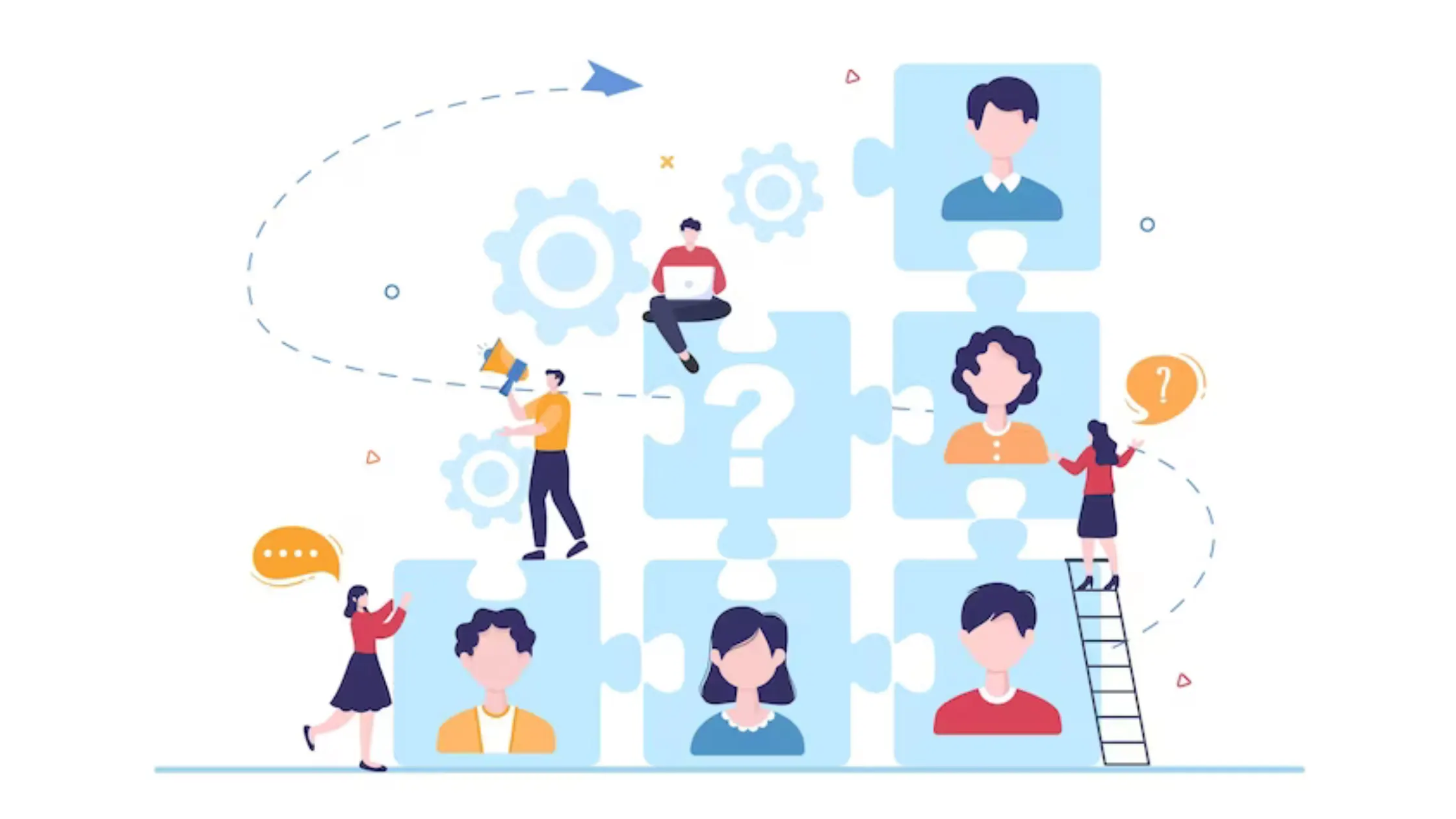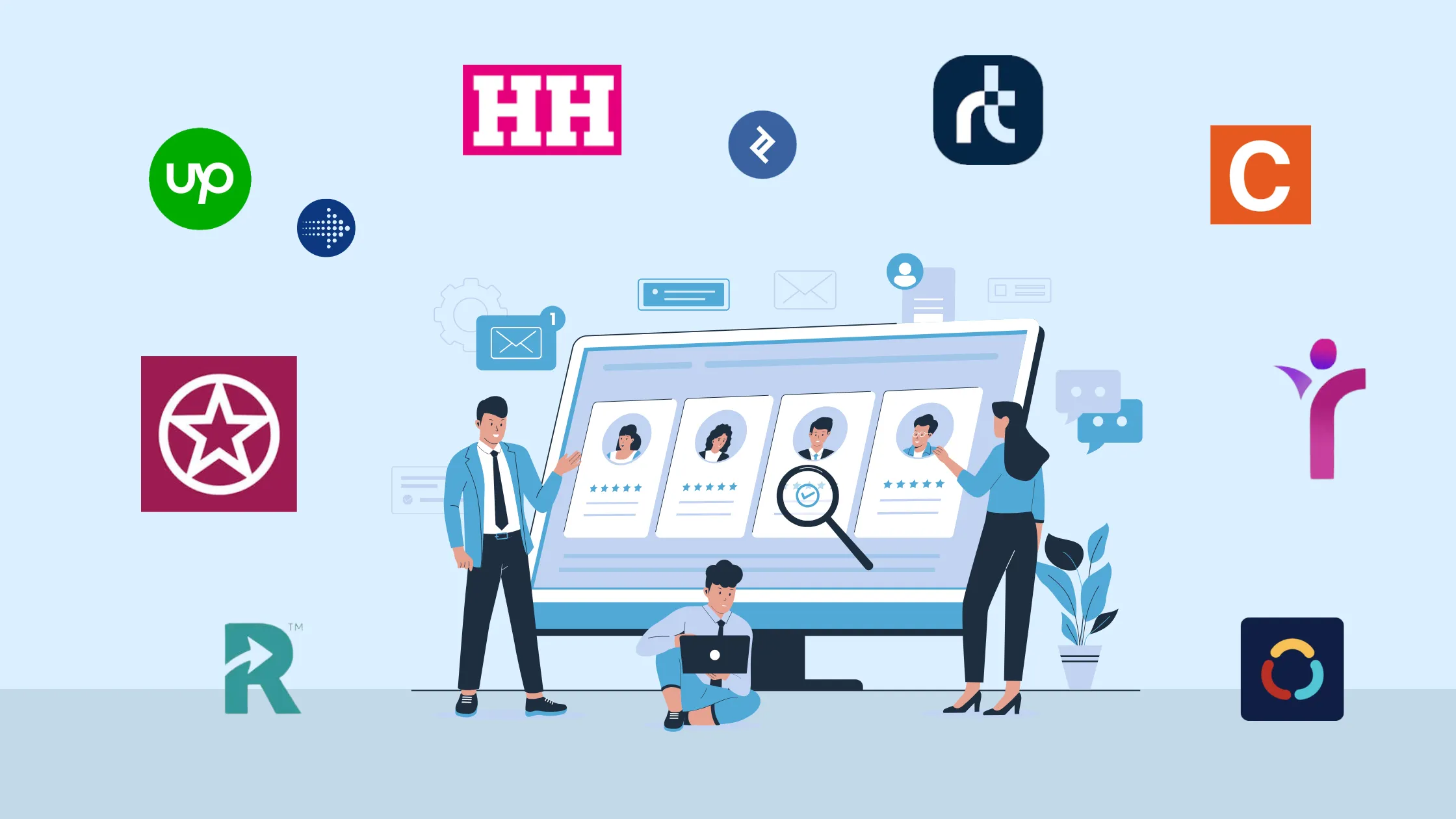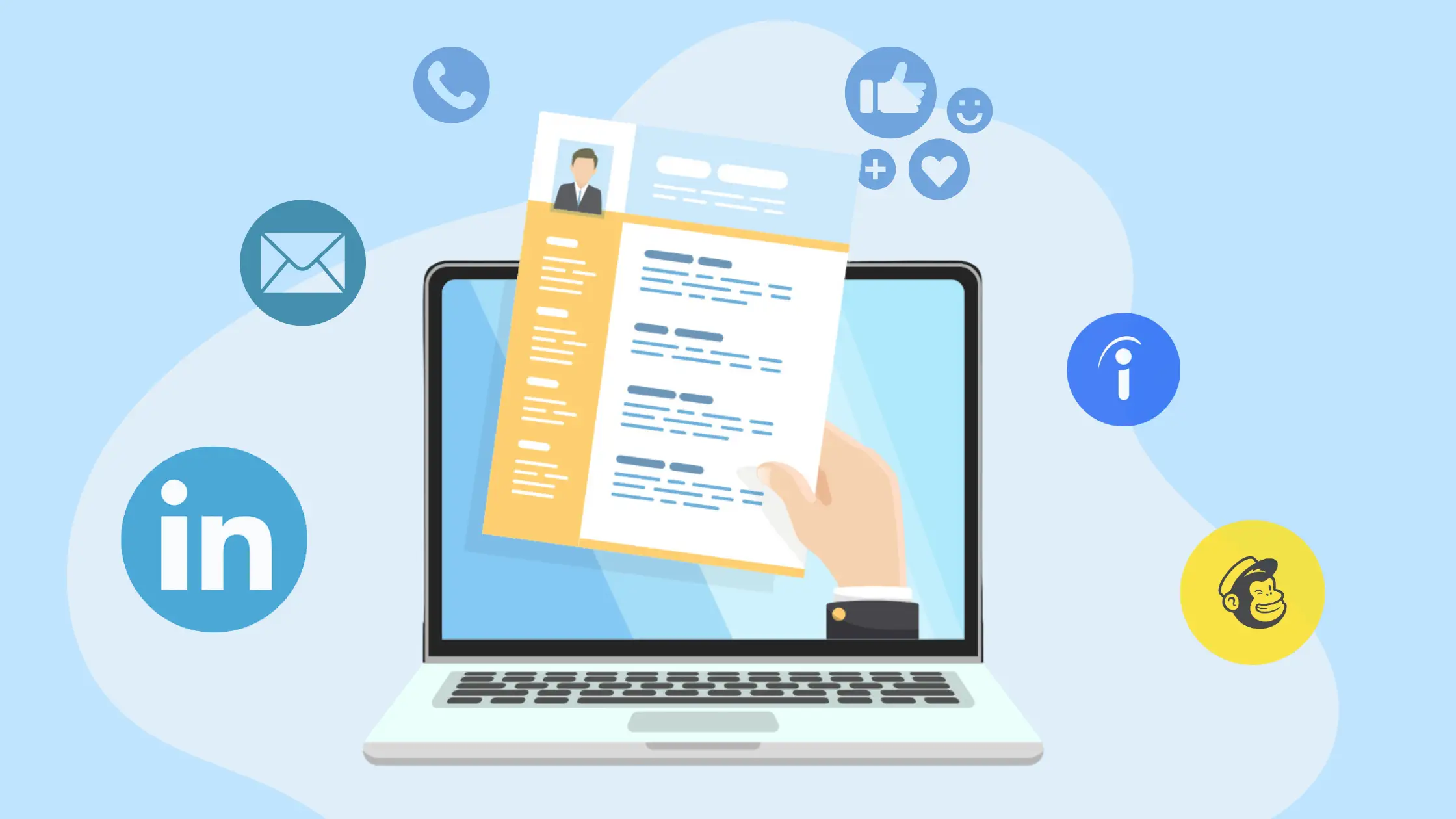TL;DR
- Key HR trends for 2026 include balancing remote and in-office work, prioritising employee experience, and continuous learning.
- AI and generative AI are transforming recruitment and talent management processes, making them more efficient and personalised.
- Skills-based hiring and embedding diversity, equity, and inclusion (DEI) into workplace culture are reshaping recruitment practices.
- Leadership now emphasises empathy and agility to foster trust and navigate change effectively.
Five years into the new decade, the world looks markedly different from what we knew in 2020. We have faced one of the greatest global challenges in recent history, battling a pandemic, social unrest, and economic crises.
These events reshaped our lives and habits and affected our predictions for the previous year. As a result, HR trends we thought would be the highlight of 2026 either didn't happen or came in a slightly different form.
The HR industry is revolutionising at a rapid pace due to the advancement of technology. Hence, new HR trends in 2026 are crucial to maintaining the HR industry's workflow.
Recruiters and HR teams want to follow future directions, but several queries are going across in their minds, such as: What are the different upcoming HR trends? How many HR trends are there for 2026?
In addition, Our natural curiosity to think about future HR trends and what will shape the future remains. Having those ideas, insights, and information helps us navigate what's ahead of us and create goals. We analysed what the HR future will look like and which HR trends will dominate the recruitment landscape.
Here, recruiters and HRs will get information on the Top Upcoming HR Trends To Consider In 2026.
Curious About HR Trends for 2026? Here’s What to Know
The past years were difficult for the HR industry, and the HR team faced many challenges. But here, we have reached the new year, i.e. 2026, and to enable the HR teams to achieve their goals by following the emerging HR trends, we have prepared the future HR trends.
These HR future trends, with the adoption of mass recruitment solutions, will help mass recruiters and HRs cover up all their previous downturns by the end of 2026. Trends in HR permit the HR industry to focus only on the worthwhile section of human resources during the year to become desirable in human resource management. Here are the latest HR trends for 2026.
1. Balancing Remote and In-Office Work
Even though remote work isn't a novelty and has kept its position on a list of HR trends in the last few years, only recently have remote workers become the majority. What once was a prediction became a burning topic that will keep its intensity in 2026.
Working from home has myriad benefits that ensure it won't fade after the vaccine for COVID-19 is available to everyone. If telework is not an option, 55% of employees will look elsewhere. It is a kind of work that makes workers more productive, leaves them more time with families, and takes less time off.
But not every profession lets you work remotely, at least not full-time. Thus, some employers prefer having their employees on-site.
So, leaders will have to find a compromise that will be beneficial for the business and employees. Whether that's to allow their staff to work from home at least twice per month or to let them choose, employers should think about a solution that will satisfy everyone.
2. Prioritising Employee Experience
The emphasis on employee experience peaked in 2019-2020 due to the aftermath of the coronavirus. Workers had to juggle between surviving a pandemic and achieving satisfactory work results, which often caused stress, lack of productivity, and burnout.
Employers had to make the employee experience a priority and ensure that their staff had everything they needed to handle their responsibilities and stay safe. But it isn't all about providing workers with the necessary equipment, the possibility to work from home, and well-being programmes.
Last year forced companies to include employees' personal lives and issues into the picture and understand how that affects their work. For a long time, we thought that work and personal life were two separate categories, but we are now reminded that if one is in danger, the other will face the consequences too. This is why it's important to separate your work and personal profile.
One of the HR trends for this year will be to consider how to extend employee experience and include financial, physical and mental health support.
3. Emphasising Continuous Learning
We can consider this trend as one of the latest HR trends. During the quarantine, many people found ease in studying, learning a new language, or practising old skills. That was a reminder of how powerful it is to acquire information or deepen the old ones. Knowledge leads to personal and professional improvement, which is also an advantage for companies.
One of the principal HR trends in 2026 will also be learning. Organisations will invest in it, providing employees with new skills, development, and greater chances of reaching higher levels.
The key to making learning continuous is to make it available at all times. That is why most companies will opt for creating e-libraries, online workshops and courses.
4. Leveraging AI in Recruitment
In 2026, the world will rely on technology more than ever. That trend will only grow this year, and companies will implement advanced AI-based technology and tools.
Recruiters will automate tedious and repetitive tasks. That will give them more time to focus on meaningful elements of recruitment. Platforms like iSmartRecruit, Talowiz AI Agents and Zappyhire go beyond simple automation. These intelligent agents act like full-time recruiting assistants, sourcing candidates with dynamic strategies; no search, no filters required.
Artificial intelligence is the present and future HR trend, and its presence will become widespread. Companies will use it to source candidates, parse resumes, and onboard candidates with more ease and accuracy. 76% of HR leaders believe that if their organisation does not adopt and implement AI solutions, such as generative AI, in the next 12 to 24 months, they will be lagging in organisational success compared to those that do.
5. Shifting Towards Skills-Based Hiring
Skills-based hiring is transforming recruitment by focusing on what candidates can do rather than where they studied or worked previously. This approach widens the talent pool, promotes diversity, and ensures a stronger alignment between job requirements and actual capabilities.
Many organisations are removing degree requirements and using assessments or AI to evaluate core skills. By doing so, they unlock opportunities for non-traditional candidates and reduce bias in hiring. As job roles evolve rapidly, prioritising skills over credentials ensures companies hire adaptable talent ready to grow and contribute in a changing business environment.
6. Redefining Leadership with Empathy and Agility
Leadership in the modern workplace demands more than technical expertise. Today’s leaders must be empathetic, agile, and emotionally intelligent to effectively support and inspire their teams. They are expected to foster trust, manage change proactively, and communicate with transparency. Empathetic leaders understand individual needs, promote psychological safety, and create inclusive cultures. Agility enables leaders to pivot quickly in response to market shifts or internal challenges. Together, these qualities ensure leaders are not only managing people but also empowering them to perform, innovate, and remain engaged in increasingly dynamic work environments.
7. Embedding DEI into Workplace Culture
Diversity, Equity, and Inclusion (DEI) are now essential elements of organisational culture rather than isolated initiatives. Leading companies are integrating DEI into hiring practices, performance evaluations, leadership development, and everyday interactions. This ensures all employees feel respected, valued, and able to contribute fully. As organisations expand inclusive hiring beyond borders, an employer of record platform supports equitable and compliant employment across different regions. Inclusive policies, transparent communication, and active support for underrepresented groups are becoming standard. Employee Resource Groups (ERGs) and regular bias training help maintain focus and accountability. By embedding DEI into the fabric of their culture, organisations foster innovation, attract diverse talent, and build a stronger sense of belonging across their workforce.
8. Adopting Data-Driven Recruitment Strategies
Data is reshaping how recruitment decisions are made. With analytics tools, HR teams can track sourcing performance, optimise candidate selection, and reduce hiring biases. Key metrics like time-to-fill, cost-per-hire, and quality-of-hire guide smarter, more strategic recruitment. Predictive analytics also help forecast future talent needs and assess candidate suitability based on past success patterns.
This data-driven approach enables continuous improvement in hiring processes and supports better alignment with business goals. By embracing recruitment analytics, organisations can make faster, fairer decisions that improve candidate experience and long-term workforce performance.
9. Building a Culture of Trust and Transparency
Trust is the foundation of every successful organisation. In 2026 and beyond, employees expect open, honest communication from leadership and involvement in key decisions. Transparent workplaces share company goals, performance data, and change updates clearly and regularly. Managers play a key role in maintaining this trust through consistent feedback, active listening, and fair treatment.
A transparent culture encourages accountability, reduces uncertainty, and empowers employees to contribute more confidently. By prioritising trust and communication, companies strengthen employee relationships, improve engagement, and create a more collaborative and resilient workplace environment.
10. Engaging Millennials and Gen Z
While the first ones are already the largest generation in the workforce, their younger counterparts, Gen Z, will join them soon. This is why this year, one of the top HR trends will be understanding these two generational cohorts.
These two generations have different priorities, goals, and habits from Baby Boomers and Gen X. If employers want to attract them, they will have to learn how to address their needs.
11. Leveraging Internal Mobility and Talent Marketplaces
Internal mobility is gaining traction as a way to fill roles, reduce hiring costs, and retain valuable talent. By creating talent marketplaces and short-term project opportunities, organisations allow employees to explore new roles, build skills, and grow their careers internally. This boosts employee engagement and decreases turnover. It also ensures companies tap into existing talent before seeking external candidates. Tools that map employee skills and suggest relevant openings are making internal mobility more accessible. Ultimately, a culture of mobility supports agility, encourages cross-functional collaboration, and strengthens organisational resilience.
12. Enhancing Employer Branding and Candidate Experience
A strong employer brand is essential for attracting top talent in a competitive job market. Companies are investing in consistent, authentic messaging across channels, from job ads and careers pages to social media and review sites.
The candidate experience is also under the spotlight. Simplified applications, timely feedback, and respectful communication leave lasting impressions. Candidates who feel valued, even when rejected, are more likely to reapply or refer others. By focusing on employer branding and experience, organisations improve application rates, attract better talent, and reinforce their reputation as an employer of choice.
13. Generative AI in Talent Management
Generative AI is revolutionising talent management by automating content creation across the employee lifecycle. From crafting personalised job descriptions and interview questions to generating onboarding guides and training content, GenAI helps HR teams save time and scale experiences. It also powers real-time coaching, feedback summaries, and performance insights, making talent processes more responsive and intelligent.
However, successful adoption requires human oversight, data governance, and ethical guardrails to ensure fairness. When used responsibly, generative AI empowers HR to deliver more personalised, efficient, and engaging talent solutions while freeing up time for strategic work.
14. HR as Strategic Business Partner
HR is evolving from a support function to a core driver of business strategy. Today’s HR leaders contribute to decisions on organisational growth, digital transformation, workforce planning, and culture-building. By using people analytics and aligning talent initiatives with company goals, HR adds measurable value to performance and profitability.
Strategic HR focuses on developing future-ready skills, improving leadership pipelines, and enhancing agility across the business. This shift also requires closer collaboration with finance, operations, and IT teams. As a result, HR is no longer just about hiring and compliance; it’s about shaping the future of the organisation.
How Can You Prepare for Upcoming Changes in the HR World?
Navigating changes in the HR landscape can be challenging, but with the right approach, you can ensure a smooth transition. Here are some expert tips to help you stay ahead:
-
Stay Informed: Keep up with the latest HR trends and industry news. This will help you anticipate changes and prepare accordingly.
-
Flexible Mindset: Embrace flexibility. The ability to adapt quickly to new situations is crucial for success in a constantly evolving environment.
-
Employee Communication: Maintain open lines of communication with your employees. Keeping them informed about changes helps build trust and eases transitions.
-
Training and Development: Invest in continuous learning and development for your team. This not only enhances their skills but also prepares them for future changes.
-
Invest in Digital Tools: Embrace new technologies that can streamline HR processes and improve efficiency. Tools like AI in recruitment and mobile-friendly platforms are becoming essential.
-
Diversity and Inclusion: Foster a diverse and inclusive workplace. This not only improves employee satisfaction but also drives innovation and better decision-making.
-
Soft Skills Development: Encourage the development of soft skills like communication, teamwork, and problem-solving. These skills are increasingly important in today’s workplace.
-
Prepare for Generational Shifts: Understand the needs and preferences of Millennials and Gen Z. Tailor your recruitment and retention strategies to meet their expectations.
- Create a Future-Ready Culture: Foster a growth mindset, encourage continuous learning, and celebrate innovation across your organisation.
By staying proactive and embracing these tips, you can effectively prepare for the changes and challenges that lie ahead in the HR world.
Conclusion
So, we've covered a lot of ground. From hybrid workspaces to AI in recruitment, the HR world is changing faster than ever. It's like navigating a high-speed train while building a new track at the same time. Exciting, right? But also a bit daunting.
The truth is that HR is no longer just about paperwork and policies. It's about people, their growth, and their happiness. It's about shaping a company's culture and future.
We've talked about creating amazing employee experiences, building strong teams, and harnessing technology. But the real question is: How can HR professionals balance all these trends without losing sight of what truly matters - human connection?
Let’s keep this conversation going. The key to thriving in 2026 is to adapt, innovate, and lead with a human touch. The future of HR is here; let’s shape it together!
Frequently Asked Questions(FAQs)
1. What are the biggest HR trends shaping the workplace in 2026?
The top trends include AI-driven recruitment, skills-based hiring, employee well-being, hybrid work strategies, and a growing focus on diversity, equity, and inclusion (DEI). HR teams are also prioritising continuous learning and agile workforce planning.
2. How is AI changing the way HR teams operate?
AI is streamlining repetitive tasks like resume screening, interview scheduling, and onboarding. It also helps HR teams make data-driven decisions, predict workforce needs, and personalise employee experiences more effectively.
3. Why is employee experience a top HR priority today?
Employee experience has a direct impact on retention, engagement, and productivity. With remote and hybrid work becoming the norm, companies are investing in flexible benefits, wellness programmes, and strong internal communication to support their teams.
4. What skills do HR professionals need to stay relevant in the future?
Key skills include data literacy, digital HR tools, change management, emotional intelligence, and strategic thinking. As the role of HR evolves, professionals must also embrace continuous learning and adaptability.
5. How can companies prepare for future changes in HR?
Businesses should invest in HR technology, personalise development paths, support multigenerational workforces, and foster inclusive cultures. Staying proactive with trends and employee needs ensures resilience and long-term success.













.webp)


